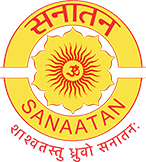- Home
-
Sanaatan Society
-
Philosophy
- Sanaatan-Scriptures
- Buddha-Scriptures
- Jain-Scriptures
- Sikh-Scriptures
- Other Sanaatan Scriptures
- Sanaatan-Common Knowledge
- Buddha-Practices
- Jain-Practices
- Sikh-Practices
- Denominations
- Additional Topics
- History
- Struggle For Survival
- Arts & Science
- Customs & Traditions
-
Philosophy
- Quick Look-Ups
- Shop
- Forums
- Home
-
Sanaatan Society
-
Philosophy
- Sanaatan-Scriptures
- Buddha-Scriptures
- Jain-Scriptures
- Sikh-Scriptures
- Other Sanaatan Scriptures
- Sanaatan-Common Knowledge
- Buddha-Practices
- Jain-Practices
- Sikh-Practices
- Denominations
- Additional Topics
- History
- Struggle For Survival
- Arts & Science
- Customs & Traditions
-
Philosophy
- Quick Look-Ups
- Shop
- Forums
Need volunteers to add content, review content, to work on social media. Conatct at sansansthan@gmail.com.Need volunteers to add content, review content, to work on social media. Conatct at sansansthan@gmail.com
सामग्री जोड़ने, प्रकाशन से पहले सामग्री की समीक्षा करने, सोशल मीडिया आदि पर काम करने के लिए स्वयंसेवकों की आवश्यकता है। sansansthan@gmail.com पर संपर्क करें।.सामग्री जोड़ने, प्रकाशन से पहले सामग्री की समीक्षा करने, सोशल मीडिया आदि पर काम करने के लिए स्वयंसेवकों की आवश्यकता है। sansansthan@gmail.com पर संपर्क करें।
Need volunteers to add content, review content, to work on social media. Conatct at sansansthan@gmail.com.Need volunteers to add content, review content, to work on social media. Conatct at sansansthan@gmail.com
सामग्री जोड़ने, प्रकाशन से पहले सामग्री की समीक्षा करने, सोशल मीडिया आदि पर काम करने के लिए स्वयंसेवकों की आवश्यकता है। sansansthan@gmail.com पर संपर्क करें।.सामग्री जोड़ने, प्रकाशन से पहले सामग्री की समीक्षा करने, सोशल मीडिया आदि पर काम करने के लिए स्वयंसेवकों की आवश्यकता है। sansansthan@gmail.com पर संपर्क करें।
- Home >>
- Sanaatan Society >>
- Philosophy >>
- Sanaatan-Common Knowledge >>
- Sanaatani Pillars >>
- Debate System
- Sanaatan Society
- Quick Look-Ups
- Shop
Debate System
Healthy debate enables a society to keep evolving, adopting new innovations and adjusting to chaning times. As we say -- change is only guaranteed, hence a society which refuses to change, will suffer in the long run. We will review the Six Pramanas that are considered correct means of accurate knowledge/ truths, in scripture section. We will just list these here: (1) Pratyakṣa (perception), (2) Anumāṇa (inference), (3) Upamāṇa (comparison and analogy), (4) Arthāpatti (postulation, derivation from circumstances), (5) Anupalabdhi (non-perception, negative/cognitive proof) and (6) Śabda (word, testimony of past or present reliable experts).
Debate is a technique where participants use logic and intelligence to prove their point. Once point was proven, it would be accepted by all and society would adopt it. [Very close to modern decision making process -- discuss pros and cons as much as you like until decision is made, once decision made whole organization accepts the decision].
Stakes were quite high in some of the debates. A few examples:
- Ashtavakra and Acharya Bandi Debate
- Gargi – Yagyavalkya Samvad
- Yajnavalkya and Maitreyi Samvad
- Buddha and Somdand debate
- Adi Shankaracharya and Shri Mandan Mishra Shrastarth: English and Hindi
The stakes in the debate of Ashtavakr & Arachry Bandi, Buddha & Somdnad and Adi Shankarcharya & Shir Mandan Mishra are so high -- death, loser leaves his path and follows the path of the winner. In such a situation, intellect is very important. A society with such traditions is bound to find many many ways to reach the truth.
One of reason for applying tilak at the point of sahasrar chakra [between the eye-borws] is to celebrate the supremacy of intellect.
Copyright notice – Sanaatan Website, Contents, and Materials
This website and its contents; and materials produces by Sanaatan Sansthaan, physical, audio-visual, or in any other form (Sansthan Material); are copyrights of Sanaatan Sansthaan - © Sanaatan Sansthaan-2022. All rights reserved.
Any distribution or reproduction of part or all of the contents and materials in any form is prohibited other than the following:
- you may print or download to a local hard disk extracts for your personal and non-commercial use only, and
- you may copy the content of the website and Sansthan Material to individual third parties for their personal and non-commercial use, but only if you acknowledge the website and Sanaatan Sansthan as the source of the material.
You may not, except with our express written permission, distribute or commercially exploit the content. Nor may you transmit it or store it in any other website or in any other form of electronic retrieval system.
To serve you better the site uses Cookies and records your preferences as well as the pages you visit. We don't share your personal information with anyone.
